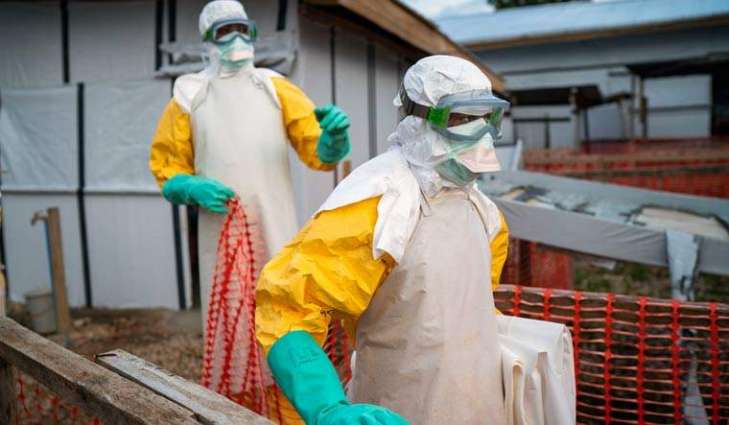With new cases of the deadly Ebola disease reported in the northwest of the Democratic Republic of the Congo, and some 1,000 cases in the east, the World Health Organization (WHO) estimates that the risk of it spreading countrywide is high, Ngoy Nsenga, the leader of the WHO Ebola response team, has told Sputnik
MOSCOW (Pakistan Point News / Sputnik - 11th June, 2020) With new cases of the deadly Ebola disease reported in the northwest of the Democratic Republic of the Congo, and some 1,000 cases in the east, the World Health Organization (WHO) estimates that the risk of it spreading countrywide is high, Ngoy Nsenga, the leader of the WHO Ebola response team, has told Sputnik.
Since August 2018, the DRC has been struggling to curb the worst Ebola outbreak in its history, with its current epicenter in the eastern Kivu province. Last week, a new outbreak was reported in the northwestern part of the country.
"Ebola is always a disease that everyone should be concerned about ... It has the ability of expanding, and it has the ability of killing many people ... We are concerned; so far we think the risk at the country level, at the national level is high, but at the regional level is moderate and on the global level is moderate. It's not as high as we could think," Ngoy said.
The team leader noted that the country's existing infrastructure was able to cope with the new outbreak.
The current number of confirmed cases is still low, but health authorities must now closely monitor all the possible contacts of the infected people in order to control the outbreak.
"At this point, the outbreak is not that extensive - at least in terms of the numbers of cases that are known," Ngoy added.
DRC Health Minister Eteni Longondo said on June 1 that the new Ebola outbreak had been reported in the city of Mbandaka in the country's northwest. On Tuesday, WHO Director-General Tedros Adhanom Ghebreyesus said that the strain of the virus in Mbandaka was unrelated to the existing outbreaks, and probably came from an animal reservoir.
According to Ngoy, the existing vaccine was still effective, adding that the WHO has already started vaccinating people in the area.
"Our colleagues already vaccinated some 600 people in Mbandaka as a preventive measure for the population," he said.
Ngoy noted that WHO was taking necessary measures to prevent Ebola from spreading to neighboring countries.
"With Ebola the risk of expansion is always there," the expert said.
He added that the WHO was working closely with countries to raise awareness about the outbreak and put in place some preventive measures.
"We are taking measures in those countries, especially those who are around that area - Congo and car [Central African Republic] - to strengthen their preparedness measures and of course the surveillance, because the ability to fight better on outbreak also means the ability to detect as early as possible the first cases," Ngoy said.
The DRC was expected to declare the end of the Ebola epidemic in April. However, more than 50 days after the region's last Ebola patient recovered on March 27, a new case was reported in the eastern region of Kivu.
The epidemic began in summer 2018 and has claimed over 2,200 lives.




